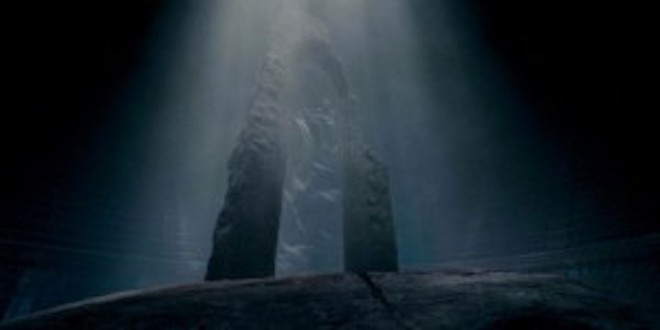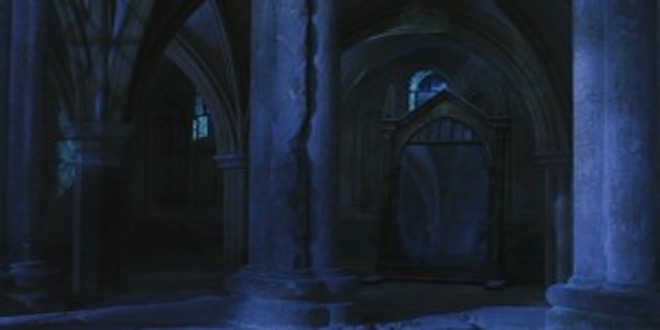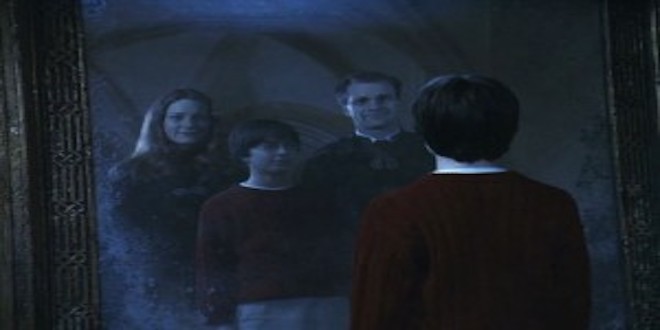The Transparent Dangers of the Wizarding World
Could the Veil and Mirror of Erised be more dangerous than the Imperius or Cruciatus Curses? I might sound crazy, but hear me out. Throughout the series, we are introduced to a number of different ways for wizards to be tortured and harmed. Whether it be Bludgers, which can cause broken bones, Polyjuice Potion, where you can become someone else, or the Unforgivable Curses, no explanation needed, Potter is filled with darkness. A Bludger can be jinxed to attack you, as Dobby did to Harry in Chamber of Secrets. The Polyjuice Potion can affect those around you by falsely portraying someone and meddling with their relationships. The Unforgivable Curses can torture, control, or kill someone. All are terrible in their own way, but none of these options is self-inflicted.
Those things are done to you, not done by you (unless you’re the one taking the Polyjuice, and if so, be careful, and do so for the right reasons). With the Veil and the Mirror of Erised, they draw you in and make you never want to leave because of what you see and hear.
We know very little about the Veil in the Death Chamber in the Ministry of Magic except for our brief encounter during the battle in the Department of Mysteries in Order of the Phoenix. It is unknown where the Veil came from, but we know it is a one-way passageway from the land of the living to that of the dead. It is an archway with a shimmering, black curtain that has existed for decades. If someone were to walk through, they would pass on to the next world, making it extremely dangerous.

Also unknown of its creation, we have the Mirror of Erised that exists in Hogwarts. It was first hid in the Room of Requirement but later moved to an unused classroom in Sorcerer’s Stone, where Harry discovers it one night. The power of this mirror is simple, as it is not to see one’s reflection but to illuminate your hidden and deepest desires. Harry looks into the mirror and sees himself surrounded by the family he never knew. Ron sees himself at the center of attention with all of the most coveted awards and positions available. Dumbledore says he sees socks but really is back with his family, the one he destroyed in his search for power.

The two aren’t causing any physical pain or latching onto anyone, so why are they so powerful? Why could they be considered worse than the Cruciatus? Because they are self-inflicted, inner torture.
Not just anyone can walk past and ignore the Veil, as seen in Order of the Phoenix when Harry and Luna hear soft voices coming from within the curtain. Harry is entranced and wants to know who these people are. Are they hurt? Trapped? Can he save them? It takes Luna’s – always surprising – wisdom to reassure Harry that there isn’t anything he can do. Ginny and Neville are intrigued by it as well; both have experienced a different kind of loss and pain than Harry and Luna but enough to leave remnants that the Veil can tap into. Eventually, Harry and Luna are removed from its presence to continue on with their original plan, but had they been alone, it’s of question how long they may have remained to listen to the voices. There is always the possibility that one would have reached out to touch the curtain and pass through onto their next life.
The Mirror of Erised provides its own kind of torture. In Sorcerer’s Stone, Harry consistently returns to sit and watch his reflection for a number of evenings. Harry cannot help but be enchanted by its powers and the ability to inspect the family he never had. While in the film, Harry only sees his parents, the book tells us that Harry eventually gets a glimpse of his entire extended heritage. For an orphan who has been living with his dreadful aunt and uncle, the opportunity to get even the tiniest of information about his more accepting family is too much for him to pass up. Ron tells Harry it’s not healthy for him to continue to go back every night, but Harry continues to do so, and with each evening he does, he inflicts more pain on himself, knowing he’ll never truly have what he sees. Even so, Harry’s obsession with the mirror keeps him from doing research on Nicholas Flamel, only to later disappoint Hermione when she returns from Christmas break.

Ron looks in the mirror, expecting to meet Harry’s relatives but instead sees himself rich, Head Boy, Quidditch Captain, and adored by all. Ron yearns to be rich due to his current living situation, all of the heat he takes from the Malfoys, and the inner embarrassment he feels from being friends with someone so wealthy. Both of his eldest brothers held two of the most highly admired Hogwarts positions, Head Boy (Bill) and Quidditch Captain (Charlie). Ron believes that if he wants to stand out and gain attention from his mother, he needs to be one of those two, so in his reality, being both would be best. In addition, Percy is a prefect, and the twins, Fred and George, are famous for their humorous and charming personalities. Ron only visits the mirror once and is entertained by what he sees, but is it possible that due to this experience, it reminds Ron of how little he has? Ron grows to become a jealous person at moments as seen throughout the series whether it was Harry being named a Triwizard Champion in Goblet of Fire or Harry and Hermione’s friendship in Deathly Hallows, which lead to his departure. Ron does have a few small victories, including being a prefect and Gryffindor Keeper. Those instances remind us of what Ron, at age 11, felt was most important, while his moments of jealousy also demonstrate what he has always felt he was, second best.
In Dumbledore’s case, he is forever tormented by the death of his sister that he cannot bring himself to be honest with Harry when asked about what he sees in the mirror. Indeed, he never mentions it at all. We only learn of the incident and his past through Rita Skeeter’s novel in Deathly Hallows. Dumbledore later moves the mirror to a new location to prevent Harry from wasting his life in front of it, perhaps the same way Dumbledore might have in the past.
There is something haunting about being able to stare or listen to what you desperately want to see and hear. Harry would do anything to talk to his family, Ron would do anything to be more popular, and Dumbledore would do anything to grieve and apologize. Luna, who seems content with any way the wind blows, would be satisfied with an opportunity to learn more about the afterlife and her mother. Neville would love to show his parents, who are lying unaware in St. Mungo’s, how much he has grown and to make them proud. Ginny would want to shed her experiences with Tom Riddle and the everlasting memories left with her.
The Veil and Mirror of Erised cause our favorite characters self-inflicted torture without them even realizing it. It seems natural and harmless to glance into a mirror and see you accomplish all you could ever dream of or to listen to the voices you hopelessly want to hear. Anyone could waste their life away by returning and remaining by their side. When Dumbledore informs Harry that he will be moving the mirror and insists that Harry not go looking for it, Harry knows his time is up. In order to end such suffering, these characters have to remove themselves from the source of pain.
Of course, Bludgers, potions, and curses have to take their course. They are made or directed with a purpose and will not stop until that purpose is achieved. When Harry places the Imperius Curse on a goblin in Gringotts, the curse remains until it it washed away by more powerful magic. Those types of tortures are out of the victim’s control. Yet the Veil and Mirror of Erised are not making the rules – you are, by playing into their charm.
As Dumbledore told Harry the night of his final visit to the mirror, “It does not do to dwell on dreams and forget to live, remember that” (Sorcerer’s Stone, page 157). Our greatest enemy is ourselves, making it important to remember to continue to live rather than to focus or obsess over what we have lost or what we want.
So are the Veil and Mirror of Erised more dangerous than the Unforgivable Curses? I believe so. They test our mental strength and courage to move forward rather than to stay in the past. Potions and curses will fade, but it’s up to you to walk away from the voice and the reflections of what could be or could have been.
Do you agree or disagree? Comment below with your thoughts.
